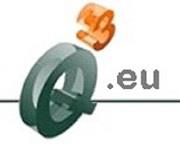Qualification of 3rd Sector in Europe: Difference between revisions
No edit summary |
No edit summary |
||
| Line 126: | Line 126: | ||
[[File:position_paper_q3_final.pdf|- Position Paper]] | [[File:position_paper_q3_final.pdf|- Position Paper]] | ||
|overall_objectives= | |overall_objectives= | ||
|title_footer=Expected Results | |title_footer=Expected Results | ||
|content_footer= | |content_footer= | ||
}} | }} | ||
[[Category:Funded Projects]] | [[Category:Funded Projects]] | ||
Revision as of 09:28, 7 November 2017
Description3rd Sector, Social Economy or Not-for-Private-Profit Organisations have an increasingly important role and visibility in people’s and communities’ lives. This happens because of the changes in public policies (transference of competences from the State to these organisations), the economic crisis, unemployment rise, poverty and the consequent need to provide more support in different areas. Nowadays 3rd Sector faces challenges that create the need for new spaces of collaboration, learning and sharing. For that it is necessary to enlarge networking and promote a European framework of discussion about the theme. The main discussion topics of this Grundtvig Partnership are about conceptual and legal frameworks, financing and training models, successful practices, evaluation methods, competences recognition and other major results. Social innovation will arise from the contact and collaboration between different partners, working in indifferent contexts and facing a wide range of problems, practices and solutions. HERE can have a better understanding about the project framework, objectives and steps. Partners come from Cyprus, Italy, Germany and Portugal (coordinator); they are all different social economy enterprises/organizations. Within this project, there are 6 learning journeys organised in all partner countries and hosted by partners. This partnership is committed to Social Economy development is several dimensions, at an European Level. For this, the main result of this project will be a POSITION PAPER. ProjectFramework The 3rd Sector, Social Economy or Not for Profit Organisation have an increasingly important role and visibility in people’s and communities’ lives. This happens because of the changes in public policies (transference of competences from the State to these organisations), the economic crisis, unemployment raise, poverty, and the consequent need to provide more support in different areas. The fact that many of these organisations were born in contexts of “solidarity”, “good will”, “charity” and support to specific communities, coupled with the fact that they have had a great growth in the last years, has created new and great challenges, among which we highlight the following three:
These challenges create the need for new spaces of collaboration, learning and sharing, making essential to develop networking and promote an European framework of discussion about the theme. Social innovation arises from the contact and collaboration between different partners, working in indifferent contexts, facing a wide range of problems and experiencing a variety of practices and solutions. The project Q3.eu will identify and exchange 3rd Sector qualification experiences at an European level, involving partners whose experience may create an added-value towards the deepness and improvement of 3rd Sector qualification activities. Main discussion topics will be: conceptual and legal frameworks, financing and training models, successful practices, evaluation methods, competences recognition and other major results, generating a new cycle of creativity, learning, networking and innovation. Objectives The project main objective is to identify and exchange 3rd Sector qualification experiences at an European level, involving partners who's experience may create an added-value towards the deepness and improvement of 3rd Sector qualification activities. - OBJECTIVE 1: Share 3rd Sector qualification experiences, debating conceptual and legal framework, financing and training models, successful practices, evaluation methods, competences recognition and other major results. - OBJECTIVE 2: Identify innovative solutions and practices for management and working models problems in 3rd Sector organisations and perspective their possible integration as 3rd Sector qualification tools. - OBJECTIVE 3: Define joint training and consultancy standards, in result of partnership experience/results integration. - OBJECTIVE 4: Propose new European project proposals. - OBJECTIVE 5: Create and enlarge the network of European partners, as a resource for these and other European partnership projects Steps
Mobilities• 1st Lisbon, Portugal, hosted by FENACERCI in December 2011
Results• Leaflets File:Brochure q3 eu initial.pdf • Newsletters File:Q3.eu newsletter 1 jan2012 1.pdf File:Q3.eu newsletter 2 april2012.pdf File:Q3.eu newsletter 3 june2012.pdf File:Q3.eu newsletter 4 nov2012.pdf File:Q3 eu newsletter 25 jun2013 boa.pdf • Youtube Video |
|
